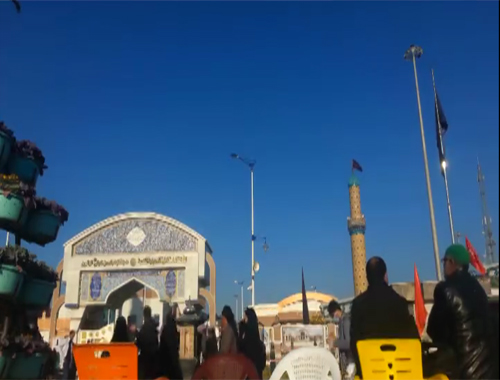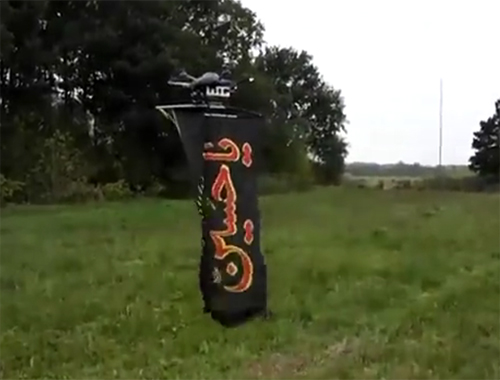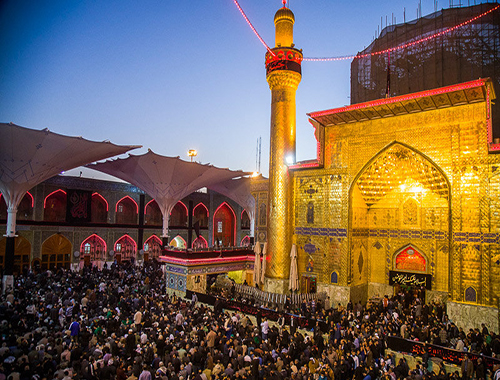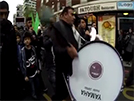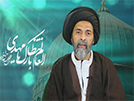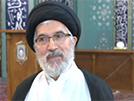Natural Sources of Wealth
- Details
- Hits: 2201
Natural Sources of Wealth
Identification of natural resources of wealth and the rules concerning them is one of the most important parts of the Islamic teachings. Some of these sources exist outside the earth which is the abode of the human beings; such as the sun, which is the source of heat and light for the earth, its dwellers and many other planets, and also the moon by the light and other effects of which, such as ebb and tide of the seas, we are benefited. Similarly air, clouds and the stars produce ample effect on human life.
It is evident that resources of this kind are for the benefit of all creatures of Allah and nobody has a right to monopolize them. Allah has described them as His bounty to all man.
Another part of the natural resources to which man has direct access exists on the surface of the earth, the important portion of it being water in the form of oceans, seas and rivers. Still another part is the dry portion of the earth, which comprises 27% of its surface. Then there are all the minerals and other treasures hidden in the depth of the oceans, seas, rivers and mountains, which have an effective role in the life of the human beings.
These are the main sources of wealth existing in the earth. As we have already mentioned the real and true ownership of all these natural resources as well as of man himself pertains to Allah. It must be remembered that the permission of being benefited by these sources has been given to us in human interest, and hence they should not be monopolized by any particular person, persons, class or society to the deprivation of other human beings.
Earth
The earth is one of the most valuable sources of wealth. Concerning the earth there are certain interesting points which are worth knowing.
Ownership of land
In Islam there are three kinds of land from the stand‑point of ownership:
(1) Lands owned by society
(2) Lands owned by State
(3) Lands owned by private individuals
Lands owned by society
This kind of lands is not salable. Even the State has no right to sell them. Lands developed and tilled by human hands and those which come under Muslim control consequent on jihad are considered to be the property of the Muslim society and none can purchase or sell even one metre thereof. The Muslim government may grant their lease to persons or associations in consideration of rent, called kharaj to be deposited in the public treasury.
The lands of Mesopotamia (situated between the two rivers, the Tigris and the Euphrates) in Iraq come under this category. On being asked by Halabi about them, Imam Ja'far al Sadiq (P) said: "These are the property of all Muslims, the Muslims of the present day, those who join the Muslim ummah later, and those who are not born yet".
Abu Bardah asked Imam al Sadiq (P) about the sale and purchase of kharaj bearing lands. The Imam replied: "Who can sell them? They belong to all the Muslims".
During tile regime of Caliph Umar a man purchased a plot of land on the bank of the Euphrates for laying a garden. After the transaction was finalized, he intimated Umar of it. Umar asked him from whom he had purchased it. He told him that he had purchased it from its owners.
When the Muslims (the Muhajirs and the Ansar,) assembled, Umar turned to that man and said:
"These are the owners of that piece of land. Have you purchased it from these people? The man replied in the negative. Thereupon Umar said: "Then hand over the plot to those from whom you have purchased it and take back your money".
The following points may be noted in respect of these lands: They are forever the property of the Muslim society and can never become personal property of anyone. Hence they cannot be sold, purchased or mortgaged.
The Muslim government, being the custodian of the general interests of the Muslim ummah, is responsible to see that these lands, the national assets as they are, should be put to the best use in accordance with the circumstances prevailing at a particular time, and the income accruing from them should be spent for the welfare of the ummah as a whole.
Lands owned by the State
All undeveloped fallow lands and all uncultivated forests and pastures are the property of the State. The Islamic state must discharge its duty in respect of them keeping in view the interests of the present as well as the future generations. Whenever deemed in the national interest that the land may be given in grant to an individual, society or association, it may be leased. In every case it should be put to the best use.
Lands owned by private individuals
If a person living in a non‑Muslim territory decides to embrace Islam and joins the Muslim society his right to the movable and immovable property held by him will be respected. If he was the owner of any land, he will continue to be so.
If the Muslim government in any case deems it in the national interest to assign any plot of land to an individual or a partnership, it can do so. In that case the individual will become the owner of that plot independently or as the member of a partnership.
As you might have observed, in the economic system of Islam the field of personal ownership of land is very limited in principle, and it may be said that, as a rule, this great and all‑pervasive source of wealth should not be personal property.
The utilization of the sources of wealth is one of the questions to which heed has been given in the Islamic economy. From Islamic point of view anything which can be used as raw material for producing the stuff required by the members of society, should not be left unattended. Everybody within his means is required to try to reclaim land, bring it under cultivation or put it to some other use, for, according to the Qur'an, Allah has brought forth man on the earth to husband it.
In Islamic jurisprudence the waste land, which has not been developed and put to any use yet, is called `dead land' and to reclaim it is called `giving life to the dead land'. According to the Islamic point of view he who takes action to reclaim such land, has a special claim to it.
The holy Prophet has said:
"He who brought a dead (barren) piece of land to life (brought it under cultivation) is the owner of that land".
"Those who reclaim a piece of land and bring it under cultivation, have a better claim to it, and hence it is theirs".
A companion of the Prophet, whose name was Asmar says: "I was with the Prophet along with certain other persons. The Prophet said: "He who takes action first to reclaim a piece of waste land will be the owner of that land".
After this announcement the people became so enthusiastic that they regularly went to the desert to select a suitable piece of land with a view to reclaim it.
It is evident that with the right of occupying the reclaimable land, the enthusiastic people are encouraged to bring more and more land under cultivation with the result that the level of production naturally goes up.
To reclaim land through cultivation or construction of a building, house, factory, etc. naturally takes a long time and cannot be completed in a day. For example, you decide to turn a hectare of land into a garden or a farm. First you go and select a suitable piece of land and then start making necessary arrangements to secure all that is necessary to carry out the intended job. Obviously all this will require time. Suppose in the meantime some one else selects the same tract of land for his use and starts working on it, then where will you stand? To avert such a situation the economic rules of Islam allow a man who intends to reclaim a tract of land to mark it by stones or fencing. By doing so he will establish a prior claim to it, and nobody else will be able to occupy it while he is making due preparations to reclaim it. Anyhow, marking will have no legal value if resort to it is made with a view to either merely grabbing the land, or depriving others, or to earn money by selling it subsequently.
Keeping arable land uncultivated
If anybody leaves his arable land untilled and does not take action to cultivate it, he loses his claim to it. His land may be handed over to someone else who may undertake to put it to use.
Imam Musa al Kazim (P) is reported to have said:
"Land belongs to Allah, who has given it to His bondmen to earn their livelihood. Hence, if anyone leaves a tract of land unattended and unused for three consecutive years without a valid reason, it goes out of his hands and may be handed over to someone else".
From the above it is clear that:
Firstly he who reclaims a tract of barren land has a right of ownership to it.
Secondly, without developing it and putting it to use, nobody can claim the ownership of barren land.
Thirdly, only superficial occupation and marking are not enough to claim ownership of land. There should be some work of productive and economic nature.
Fourthly, one who reclaims barren land, has a right to it only so long as he puts it to economic use.
Hence the action of those who occupy barren land in different ways simply to earn money by selling it to those who require it for agricultural or construction purposes, is unlawful and contrary to the economic teachings of Islam. They should be stopped from doing that.
Not only the lands which have been simply marked but even those which were reclaimed once but later left neglected and unused may be occupied and put to use by others without requiring permission of the original occupier.
Imam al Sadiq (P) is reported to have said:
"He who develops fallow land and cleans its water channels, has only to pay its zakat (tax under the Islamic law). If this land was previously under the occupation of someone else who neglected it and left it unused, he will not have a right to take possession of it again, for all land belongs to Allah and to him who puts it to use".
The Shahid‑e‑Thani, one of the greatest Shi'ah jurists of the 10th century (Hijri era) says in his book, Masalik:
"The waste land reclaimed by a person but left neglected for long, returns to its original position and can be lawfully reclaimed by any other person. The ownership of the first person was due to his reclamation and ceased to exist when he left the land neglected".
Water
Water is one of the first needs of every living being. It is also one of the most valuable natural resources from the agricultural and industrial point of view.
Under the Islamic economic system there are two kinds of water:
(1) The water which is naturally accessible and can be freely availed of.
(2) The water which is not naturally accessible, such as that of wells, underground channels, constructed canals etc.
Naturally accessible water
It is public property. Everyone can avail himself of it. One automatically becomes the owner of any amount of water taken by him for his consumption.
Shaykh Tusi, a great Shi'ah jurist of the 5th century (Hijri era) says in his book, al‑Mabsut:
Water of sea, of the rivers, such as the Tigris and Euphrates and of the natural springs that issue forth at waste lands, is public property, and according to the unanimous verdict of all jurists can be used lawfully by anyone in any quantity, for ibn Abbas has reproted that the holy Prophet said: "All people share three things: water, pasture and fuel".
Water not naturally accessible
There is water which is not directly accessible. For example to be able to make use of underground water it is necessary to dig a well or a subterranean channel. Similarly to utilize the water of big rivers for irrigation it is necessary to dig canals and channels. According to Islamic economy this kind of water is also regarded as public property and is not subject to sale and purchase. The only difference is that in consideration of the effort and exertion made by the person who dug the well or the canal, he has a prior right to use its water to the full satisfaction of his personal, agricultural or industrial needs. Others have no right to obstruct him. But once his need is satisfied, he cannot stop others from using water or demand money from them for being allowed to use it.
In this respect Shaykh Tusi says in al Mabsut:
"When we say that such and such person is the owner of that particular well, his ownership only means that he has a prior right to the use of its water for the purposes of drinking, watering the cattle and irrigation. Hence if he has water in excess of his need, it is obligatory on him to make it available free of cost to those who require it".
This rule is based on a tradition which has been quoted from imam al Sadiq (P). He is reported to have said:
"The holy Prophet prohibited the sale of the water which a person has at his disposal because he has a right to its use for the purpose of drinking and watering of cattle, or because he has built a dam on a river to irrigate his land. If he does not require it, he must not stop others from using it. Hence do not sell such water, but make it available free of cost to your neighbour or brother".
Minerals
One of the other natural resources of great value are minerals.
A great amount of the minerals is found in the earth and on the land. Some amount of them is found in water and in the space also. Many kinds of salts and chemicals which can be extracted from water and the use of solar energy obtained through space have converted water and space into valuable sources of wealth.
According to the rules of Islamic economy, minerals, whatever be their form, cannot become personal property. They will always be the property of society. A reference to the books of the Islamic law shows that as far as those minerals are concerned the extraction of which does not involve large scale drilling, excavation etc. all the jurists and either Muslim scholars are almost unanimous on this point. As for those minerals the extraction and exploitation of which requires large scale excavation etc., though some difference of opinion exists, many of the prominent jurists subscribe to the view that they are also property of society. Muhaqqiq Thani says that this is the view of the majority of Shi'ah jurists.




